Earth Institute Journalist-in-Residence programme
Our 2026 call for journalists-in-residence is now open! See details and application process below. Deadline 5pm, 8 December 2026.
UCD Earth Institute is home to a journalist-in-residence programme, an innovative initiative to provide early career and established journalists with the opportunity to work directly with climate, environmental and sustainability researchers in UCD.
The residency aims to:
- Strengthen the communication between journalists and researchers in UCD Earth Institute and across UCD more broadly;
- Offer journalists the opportunity to learn more about the Institute’s strategic projects, research themes, and members’ research areas with a particular focus on interdisciplinary research;
- Encourage Earth Institute members and UCD researchers to think and learn more about public communication of their research;
- Support high-quality journalism around environmental, climate and sustainability research.
Residencies are open to journalists, staff or freelance, that are active in any media format including print, radio, television, blog and podcast.
If you work in UCD and would like to contact one of our current journalists-in-residence, email (opens in a new window)caitriona.devery@ucd.ie
About the Residencies - 2026 Call
Earth Institute journalists-in-residence can connect with the research and teaching communities at UCD, engage Institute members projects, research groups and laboratories. The annual fellowships enable journalists to spend a full-time equivalent of one month at UCD.
We welcome applications from freelance and employed journalists with at least two years of experience working in one or more media (print, online, radio, television, podcast etc) who currently report on or are interested in developing their work around environmental and sustainability issues, climate change, science or technology in Ireland. This can include societal, economic, cultural and other perspectives, i.e. it is not limited to science journalism.
How to Apply - click Show More
The residency provides:
- A €3,000 gross payment for a one-month residency (full-time equivalent)
- Desk space and access to UCD’s library, events and other university resources
- Connections with an interdisciplinary research network including UCD Earth Institute members, research groups, and strategic research projects
- Access to UCD communications including UCD Research communications staff
Please note: UCD cannot provide accommodation or assistance with finding accommodation.
Residency structure
- Journalists will be invited to UCD for a welcome day shortly after the UCD residencies are announced and given an introduction to the programme and to UCD
- After this day, the structure of the residency is open and could include flexible working arrangements, e.g. one day a week or two two-week residencies etc, as well as hybrid (in person and virtual) elements, subject to professional and/or caring responsibilities outside of the residency
- Hybrid working may be possible after initial introductions and connections are made but successful applicants are encouraged to spend a significant amount of their residency immersed in UCD campus life and engaged with UCD staff, researchers and research groups or projects.
During the residency, journalists are expected to:
- Deliver a 10-15 minute introductory talk for the UCD Earth Institute community around time of starting
- Engage in the life of the UCD Earth Institute and UCD by attending events and activities, be available to meet interested researchers, in particular at institute coffee mornings, theme meetings and other research events
- Be proactive in making connections with UCD researchers beyond formal introductions to relevant researchers, research groups, research themes and/or strategic projects
- Organise or participate in other events for UCD Earth Institute researchers possibly including mentorship and training workshops
- Engage with UCD communications including UCD Research communications
The journalist-in-residence will connect with the research and teaching communities at UCD, engaging with UCD Earth Institute members and strategic projects and UCD research groups, laboratories, and/or strategic projects working in climate, environmental and sustainability research, broadly defined. Journalists will be free to define their own research interests within this context and will retain full editorial independence.
Evaluation
The UCD Earth Institute journalist-in-residence fellowship panel will base its decision on the following criteria:
- Experience, skills and suitability of applicant
- Engagement and reach
- Residency plans
- Samples of work provided
Successful applications will be chosen by the UCD Earth Institute journalist-in-residence steering group which includes Earth Institute staff, members and executive members, UCD communications staff, and external journalist representatives.
How to apply
Please read the full residency call document which contains some additional details.
Fill in the form Journalist in Residence Application Form and send to (opens in a new window)earth.institute@ucd.ie by the deadline of Monday 8 December 2025 at 5pm (Irish Standard Time). Please also include samples of work (maximum file size 10Mb) either as links or attachments to the application email, as detailed on the application form.
A confirmation email of the receipt of application will be sent within 48 hours of the deadline (working hours).
Interviews are expected to take place in mid January 2026.
Email (opens in a new window)earth.institute@ucd.ie if you have any questions.
Terms & Conditions
- Applicants may only submit one journalis/t residence application per call
- The proposed media project/s must be new, i.e. must not have been previously broadcast or published in any format
- The primary audience of all media must be in the Republic of Ireland
- Applicants who are already in receipt of funding from UCD or who are in full-time paid employment by UCD are not eligible to apply
- Applicants must have the right to live and work in the EU.
2025 journalists
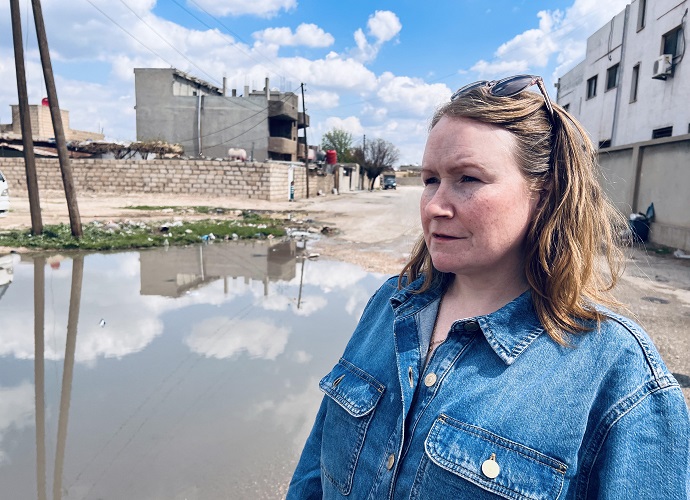
Shauna Corr
Shauna Corr is an investigative reporter with a particular interest in social justice and the environment. She took the leap into the freelance world after almost eight years with Reach Plc, where she covered everything from breaking news to crime, health and education before being promoted to environment correspondent for the island of Ireland at titles including the Irish Mirror, Star and Belfast Live. In that time, she has reported from four UN climate conferences and highlighted the impacts of the climate crisis in countries like Somalia, Kenya, CAR, Greece and at home for an Irish audience. The environmental columnist and Social Change Initiative fellow also broke many stories including the impact of blue-green algae on Lough Neagh, Belfast Lough sewage pollution, the plight of exported Irish calves, coursed hares and red listed birds still being shot for sport as well as ongoing fights against LNG, new fossil fuel infrastructure and mining. She hopes to focus on water issues and tree scarcity during her time as an in-house reporter with UCD’s Earth Institute.
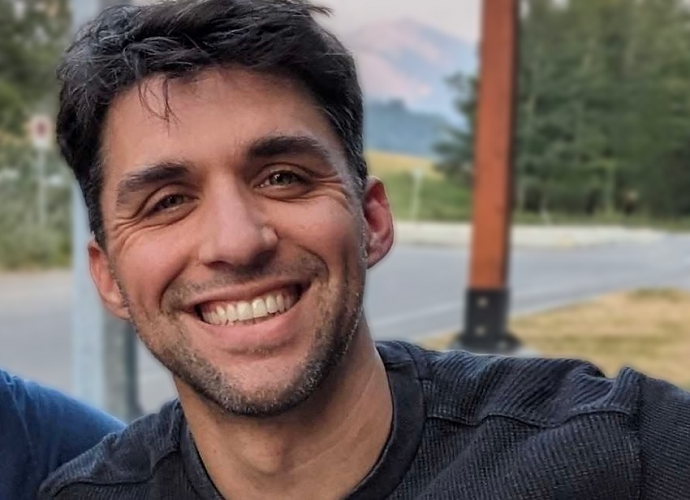
Jeremy Deaton
Jeremy Deaton is an environmental journalist and the managing editor of Yale Environment 360, an award-winning online magazine based at Yale University that features reporting, opinion, and analysis from leading environmental writers and scholars. In ten years as a journalist, Jeremy has reported extensively on science, climate, and the environment, with his work appearing in outlets such as Bloomberg, NBC News, The Washington Post, and The Irish Times. Originally from California, he now lives in Galway with his partner and their one-year-old son. As a journalist in residence at the UCD Earth Institute, Jeremy will cover efforts to restore Ireland's native forests and wildlife and to curb the climate impact of farming.
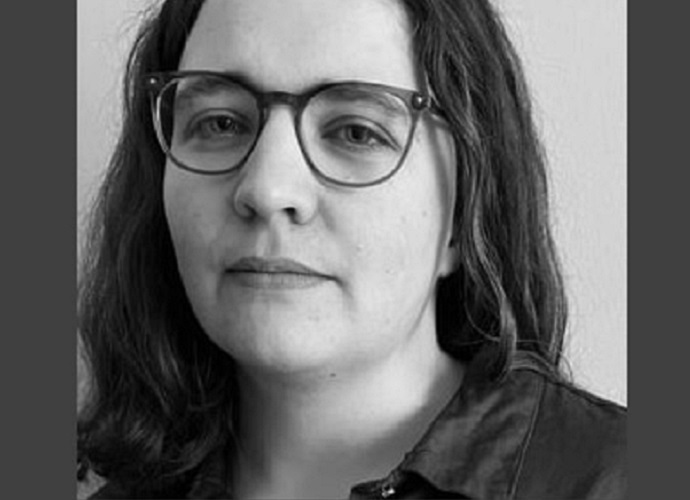
Eithne Dodd
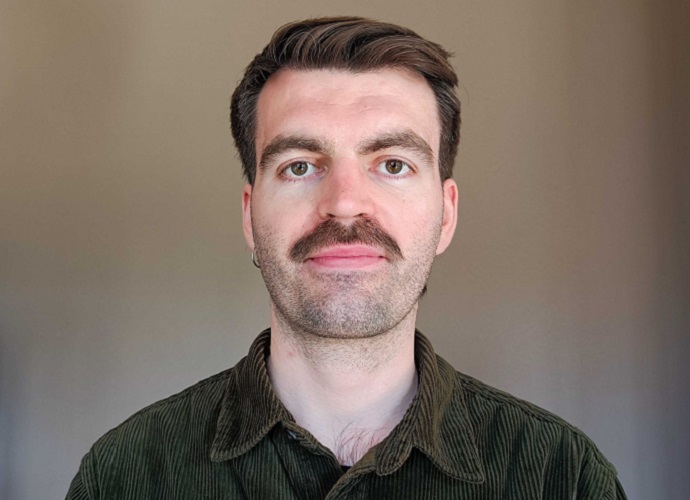
Ian Smith
Ian Smith is a video journalist at Mediahuis IRL, an organistion which publishes Irish national and regional newspapers and operates multiple websites including Independent.ie. Previously Ian was editorial manager at the European Newsroom, a cooperative project between news agencies in Europe. He was also a journalist at Euronews for over three years, producing social media content and writing articles on environmental topics, ranging from why Europe should embrace the ‘bumgun’ to how to get more people taking trains. He holds a bachelor’s in social science from UCD and a master’s in journalism from the University of Groningen. During the residency, he’s keen to explore stories around transport, air pollution and climate justice and aims to bring them to audiences in engaging ways at a time where climate journalism faces challenges in breaking through.
2024 journalists
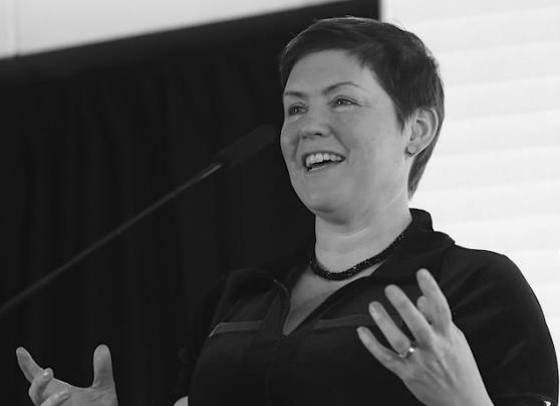
Dr Claire O'Connell
Dr Claire O’Connell holds a B.Sc. and a Ph.D. from University College Dublin and a M.Sc. in Science Communication from Dublin City University. Claire has been writing for The Irish Times about science, health and innovation since 2005, and she has written for numerous other publications, including Silicon Republic. She has published two non-fiction books:Catching the Worm, Towards Ending River Blindness and Reflections on My Life (Royal Irish Academy, 2020), written with Nobel laureate Professor William C. Campbell, and Work. Life. Lessons from Leaders (Royal Irish Academy, 2023), a collection of insights from leaders in academia, industry, medicine and politics. Claire recently edited the Midlands Science guide Making Science Outreach More Accessible. In 2016, Claire was named Irish Science Writer of the Year.
Why did you apply for the residency?
I was excited by the prospect of having time to explore the work being done across many disciplines in UCD Earth Institute. So often as a journalist you speak to a researcher about a specific aspect of their work for a specific article you are writing. I figured the residency would give me time and space to get broader perspectives on the research, and to find new insights that I might not otherwise have done.
Did you set out with a particular goal to direct your work?
My interest was in interfaces, which is where interesting things happen. That might be the interface between two different academic disciplines - like archaeology and food science - or the interactions between humans and other species, or even between microbes and plants in the soil. These boundaries and interactions are fascinating and often crucial to our understanding of the world.
What have you done, broadly, in the residency to date?
I have had a lot of coffee and chats with people. Some of those chats were planned, others were more spontaneous - I encouraged people to say hi if they saw me around campus and we could organise a time to meet. These conversations are already informing several newspaper articles and also a potentially a deeper writing project for the future. I also worked with various groups of researchers at UCD Earth Institute to help support them in their communication.
What has stood out to you from your time with the Earth Institute?
The level of collegiality, and how having a common interest can bring different minds together. I have also felt highly supported and involved and welcome.
What kind of impact do you think the residency will have on your future work?
Deep and lasting. Getting the chance to spend time in this multi-disciplinary environment has both broadened and deepened my understanding of sustainability and ecosystem and climate issues and solutions, and this will inform and enrich my future work.
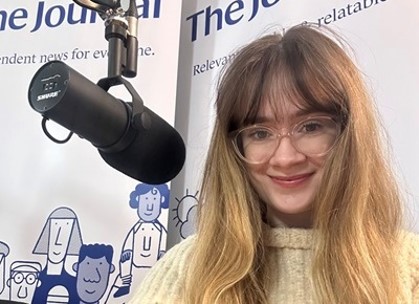
Lauren Boland
Lauren joined The Journal team in 2020 during the height of the Covid-19 pandemic and has covered many of the world’s rolling crises since then, from Covid-19 and conflicts to, most notably, climate change. She has covered major climate news in Ireland and abroad, penning stories reporting on scientific research and extreme weather events to climate action plans and policy debates. Lauren attended COP27 in Egypt and COP28 in the UAE, where she produced written and multimedia content tailored to an Irish audience. She is the author of The Journal’s monthly climate newsletter Temperature Check and regularly contributes to radio and television programmes to discuss climate and other current affairs.
Why did you apply for the residency?
Often in journalism we're working o projects with tight turnarounds. I applied for the residency because looked like a really interesting opportunity to be given some time and space and access to researchers working in the area of climate and environment, to learn more about what they are doing and and to have the dedicated time and resources to work on a project of my own.
Did you set out with a particular goal to direct your work?
The project that I'm doing is going to be through the medium of a podcast looking broadly at the theme of climate anxiety, climate guilt, how people respond emotionally to climate change, and also where responsibility or ownership is or isn't being taken for climate change and climate action at national, international or sectoral levels.
What have you done, broadly, in the residency to date?
So far, I have spent two weeks in person on the UCD campus. During those two weeks, I spent the majority of my time at meeting with researchers, which was a brilliant way to connect with people and hear about the different types of research that are happening in UCD around topics related to climate and the environment. Some of this research will be really useful for the project that I'm working on currently, and other research is sparking ideas for future articles. I am building up a sense of who has expertise in which areas where there might be opportunities for us to connect again in the future. On particular topics, I also attended lots of events while I was at UCD Earth Institute, and I did some behind-the-scenes work on the podcast project.
What has stood out to you from your time with the Earth Institute?
What stood out was the vastness and variety of the research work that's being conducted, and the level of specialisation and nuance that comes in with a lot of people's area of research. I heard about some of the really interesting work that's happening in Ireland that a lay person might not necessarily know about, the scientific research that goes really deep into the nooks and crannies of very specific climate issues. At first glance it could seem hyper-specific, but this research can have really important implications for climate change as a whole, or for Ireland's response to climate change.
What kind of impact do you think the residency will have on your future work?
It has been a really useful tool to develop connections with researchers, to better understand the kind of work that's happening in different areas, to be able to introduce myself to researchers, and it means they hopefully now will find it easier to get in touch with me and, particularly for the early-career researchers, more generally feel more comfortable speaking with journalists.
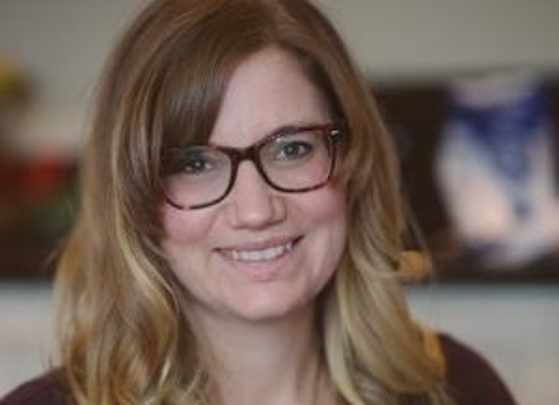
Janine Kennedy
Janine Kennedy is a freelance food journalist and previously Acting Food Editor at Irish Country Living/Irish Farmers Journal. Janine is a two-time Irish Food Writing Awards winner and was Acting Features Editor when Irish Country Living won the Newsbrand Award for Newspaper Magazine of the Year in 2021; Janine continues to write Irish Country Living’s weekly food features. During her residency with us, Janine plans to create a podcast series on the past, present and future of Irish food.
Why did you apply for the residency?
The Earth Institute Journalist in Residence programme looked like a great opportunity to collaborate with climate researchers and expand on my work as a food and agricultural journalist. I had just recently gone back to freelance journalism from a permanent, full-time role when I saw the residency announced, so the timing worked out for me, as well. It has been a very long time since I have spent any amount of time on a university campus, but I recall my own university experience very fondly and have always had a soft spot for academia.
Did you set out with a particular goal to direct your work?
I love a good food story and Ireland has such a storied history when it comes to food, politics, climate and colonialism. I want to tell the story of Irish food and agriculture from the perspective of researchers, food producers, farmers and other journalists, so I came into this residency with that very plan.
What have you done, broadly, in the residency to date?
There is much planning to be done before I begin my project, and so I am still very much in the planning stages of my residency.
What has stood out to you from your time with the Earth Institute?
The spirit of collaboration among Earth Institute members is really refreshing. Working in the world of agricultural journalism you tend to see a lot of polarisation between climate activists and farmers, but in my experience the two groups have a lot in common and have very similar goals for the future. I love seeing the different areas of research coming together because it provides a lot of much-needed context to the extremely complex issues surrounding food production in the face of the climate crisis.
What kind of impact do you think the residency will have on your future work?
My work will likely be profoundly affected by this residency through engaging with ongoing research here at UCD. I really hope it will benefit the wider farming and food-producing community, as well.